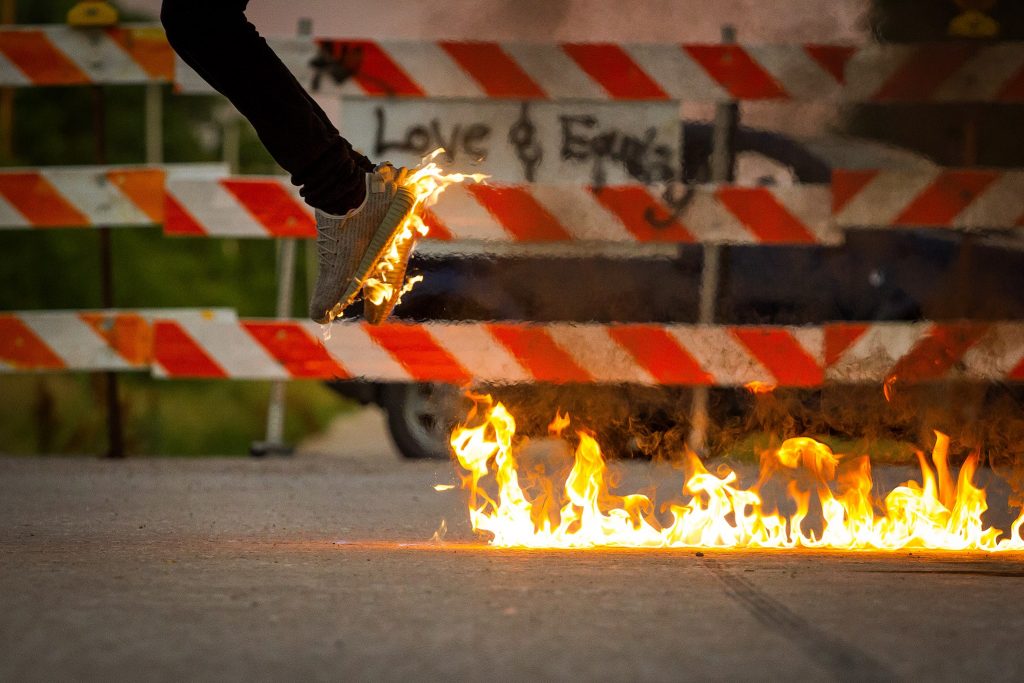Alison Saunders, the head of the Crown Prosecution Service (CPS), has announced online hate crimes will now be treated “as seriously as those committed face to face.”
The CPS have issued a public statement on hate crimes, and published new guidance for prosecutors on how to deal with different categories of hate crime.
These changes come in the wake of a dramatic increase in hate crimes during the past year. According to the Home Office, the number of hate crimes reported in the UK in July 2016, following the EU Referendum, was 41% higher than in the previous 12 months. More recently, following the attack at London Bridge in June, the number of Islamophobic attacks reported in London increased fivefold, and the number of racist incidents reported to the police increased by 40%.
In her announcement, Saunders explained that the CPS’s decision does not mean that online abuse will necessarily be sentenced in the same way as threats made in person, but that reports of online hate crimes will be treated as just as much of a priority. A racist threat or homophobic rant via social media can have a huge impact on the person who receives it. And, if ignored, the online expression of hatred and prejudice can lead to offline extremism and violence.
As Saunders has emphasized:
Whether shouted in their face on the street, daubed on their wall or tweeted into their living room, the impact of hateful abuse on a victim can be equally devastating.
So, what exactly is a hate crime?

Image Credit: James Jester / Pixabay
The police and the CPS define a hate crime as “any criminal offence” which is perceived by the victim or any other person to be motivated by hostility or prejudice based on someone’s race, religion, nationality, ethnicity, sexual orientation, gender identity, age or disability.
This could include threatening violence, causing physical harm, or damaging someone’s property. Importantly, the definition focuses on the experience of the person who is targeted, not on the intentions of the offender.
What does this announcement have to do with human rights?

Image Credit: Blue Budgie / Pixabay
Many have welcomed the CPS’s announcement, but some have asked whether the new approach will interfere with people’s right to free speech, which includes free Tweeting, blogging and even Instagramming.
The right to free speech and free expression is protected by Article 10 of the Human Rights Convention, which is given effect in UK law through the Human Rights Act (HRA). It protects our right to “hold opinions and to receive and impart information and ideas… regardless of frontiers.”
The Convention and the Act exist to prevent the State from interfering with people’s rights, and to enable us to hold them to account if they do. Some people may consider that the CPS – which is part of the State – is taking one step too far in curbing people’s freedom of expression.
However, the right to free speech is a “qualified right.” This means that it can be limited in some circumstances – for instance where exercising it threatens another person’s rights, such as their rights to freedom of religion (Article 9 of the Convention), to a family and home life (Article 8) and to freedom from discrimination (Article 14).
The State also has duties arising under Article 2 of the Human Rights Convention to protect people from harm and to investigate and punish those who carry out criminal offences, including offences online.
So it’s really a question of keeping a balance between these rights and ensuring that any infringement of people’s rights is legitimate and proportionate.
What difference will this new approach make?
 Image Credit: Dan Carlson / Wikimedia
Image Credit: Dan Carlson / Wikimedia
That remains to be seen, and it depends to what extent the approach is enforced and the guidance followed.
The CPS will publish a report on hate crimes later this year, which will give further insight into the type and number of crimes being reported, and how they’re being dealt with.







